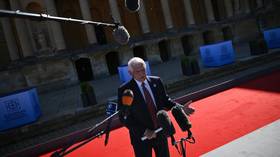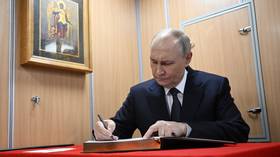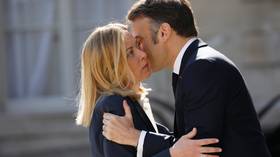EU sets date of transfer of Russian money to Ukraine for arms purchases

The EU has revealed when it will begin sending Russian money to Ukraine. The bloc’s top diplomat Josep Borrell has claimed that the first tranche of interest accruing on some €300 billion in frozen Russian assets, totaling some €1.4 billion, will be sent to Kiev in the first week of August to fund arms purchases.
The EU’s top diplomat specified that the funds will be used to meet the key needs of Kiev’s military, including air defense, artillery, “and also, and this is new, procurement for the Ukrainian defense industry.”
“So, we are not going only to provide military support to Ukraine but from Ukraine itself. Which is certainly the most logical and efficient thing we can do,” Borrell concluded.
The EU and G7 group of nations blocked some $280 billion (€260 billion) of sovereign funds belonging to the Central Bank of Russia days after the escalation of the Ukraine conflict in 2022. The bulk of the frozen funds are held in the EU, primarily in the Belgium-based depositary and clearing house Euroclear.
Earlier this year, EU authorities approved a scheme enabling the appropriation of interest accrued on the frozen funds to back Ukraine’s recovery and military defense. Under the agreement, 90% of the money is expected to go into an EU-run fund for Ukrainian military aid, with the other 10% is to be allocated for supporting Kiev in other ways.
Moscow has repeatedly said that any steps taken to transfer its assets without its consent would amount to “theft,” insisting that tapping the funds or engaging in similar moves would violate international law and lead to retaliation.
Earlier this year, Kremlin spokesman Dmitry Peskov warned that the expropriation of Russian sovereign assets could create a dangerous precedent and become a “solid nail in the coffin” of the Western economic system. He stressed that Moscow would inevitably retaliate against such a move by launching legal proceedings against entities that tap its assets.













